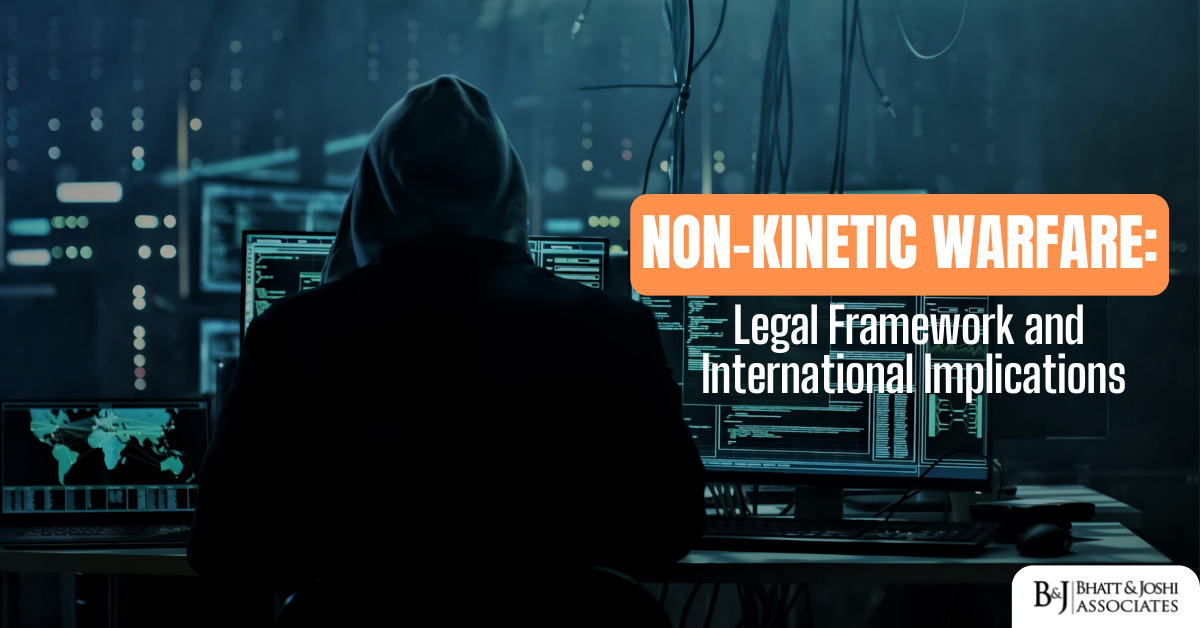Introduction
The procedural requirements governing the filing of documents with a plaint constitute one of the most fundamental aspects of civil litigation in India. These requirements, enshrined primarily in the Civil Procedure Code, 1908 (CPC), serve as the cornerstone for establishing the evidentiary foundation upon which civil suits are built. The significance of proper document filing extends beyond mere procedural compliance, as it directly impacts the substantive rights of litigants and the efficient administration of justice. The documents filed with plaint is not merely a technical formality but represents a critical mechanism designed to ensure transparency, prevent surprise, and facilitate the expeditious resolution of disputes. This comprehensive analysis examines the intricate legal framework governing document filing requirements, the judicial interpretation of these provisions, and the practical implications for legal practitioners and litigants alike.
Historical Context and Legislative Intent
The provisions relating to document filing in civil suits have evolved significantly since the enactment of the original Civil Procedure Code. The framers of the 1908 Code recognized the need for a systematic approach to documentary evidence presentation, acknowledging that the early disclosure of relevant documents would serve multiple objectives: preventing frivolous litigation, ensuring fair play between parties, and enabling courts to make informed decisions based on complete information.
The legislative intent behind these provisions reflects a balance between the plaintiff’s right to present their case effectively and the defendant’s right to be adequately informed about the claims against them. This balance is crucial in maintaining the adversarial nature of civil proceedings while promoting judicial efficiency.
Detailed Analysis of Legal Provisions
Order VII Rule 14: The Foundation of Document Filing Requirements
Order VII Rule 14 of the Civil Procedure Code, 1908, establishes the primary framework for document filing with plaints. The rule states: “When a plaintiff sues upon a document in his possession or power, he shall produce it in Court when the plaint is presented, and shall at the same time deliver the document or a copy thereof to be filed with the plaint.”
This provision encompasses several critical elements that warrant detailed examination. First, the rule applies specifically when a plaintiff “sues upon a document,” meaning that the document forms the basis or foundation of the plaintiff’s claim. This is distinct from documents that merely support or corroborate a claim; the document must be integral to the cause of action itself.
The requirement that the document be “in his possession or power” recognizes practical realities where documents may not be physically present with the plaintiff but remain within their control or accessibility. This interpretation has been broadened through judicial decisions to include situations where the plaintiff has a legal right to obtain the document, even if not in immediate physical possession.
The dual requirement of producing the document in court and filing a copy with the plaint serves multiple purposes. The production in court allows for immediate judicial scrutiny, while the filed copy ensures that all parties have access to the document throughout the proceedings. This transparency mechanism prevents tactical advantages through selective disclosure and promotes fair litigation practices.
Consequences of Non-Compliance with Order VII Rule 14
The consequences of failing to comply with Order VII Rule 14 are significant and far-reaching. The rule explicitly states that “a document not produced or listed as required by this rule shall not, without the leave of the Court, be received in evidence on behalf of the person who ought to have produced or listed it.” This provision creates a presumptive bar against the admission of documents not properly filed with the plaint.
However, the rule provides judicial discretion through the phrase “without the leave of the Court,” allowing courts to admit improperly filed documents in exceptional circumstances. This discretionary power must be exercised judiciously, considering factors such as the importance of the document to the case, the reasons for non-compliance, prejudice to the opposing party, and the interests of justice.
The courts have consistently held that this discretion should not be exercised liberally, as doing so would undermine the very purpose of the rule. The plaintiff must demonstrate compelling reasons for the non-compliance and show that admitting the document would not prejudice the defendant’s right to a fair trial.
Order VII Rule 18: Document Return and Custody
Order VII Rule 18 addresses the practical aspects of document custody during legal proceedings. The rule provides: “When any document has been admitted in evidence such document shall not be returned before final disposal of suit but when any such document is required at any time before final disposal for any other purpose it may be returned to person producing it on his giving receipt for it.”
This provision balances the court’s need to maintain custody of evidence with the practical requirements of parties who may need their documents for other purposes during the pendency of the suit. The requirement of a receipt ensures accountability and enables the court to recall the document when necessary.
The rule implicitly recognizes that original documents may have ongoing importance beyond their evidentiary value in the particular suit. Business documents, property records, and other important papers may be needed for routine transactions or other legal proceedings, making absolute retention by the court impractical and potentially harmful to the parties’ interests.
Section 30: Judicial Powers for Document Discovery
Section 30 of the Civil Procedure Code grants courts broad powers regarding document discovery and production. The section empowers the court to “make such orders as may be necessary or reasonable in all matters relating to the delivery and answering of interrogatories, the admission of documents and facts, and the discovery, inspection, production, impounding and return of documents or other material objects producible as evidence.”
This comprehensive power enables courts to ensure that all relevant documentary evidence is available for fair adjudication. The discretionary nature of these powers allows courts to tailor their orders to the specific circumstances of each case, balancing the need for complete information against concerns about fishing expeditions and harassment.
The provision also empowers courts to order discovery of documents not in the possession of parties but relevant to the dispute. This aspect of Section 30 is particularly important in complex commercial disputes where relevant documents may be scattered across multiple entities or individuals.
Landmark Judicial Interpretations
Jethi Ben v. Maniben: Establishing the Precedent for Document Filing Requirements
The case of Jethi Ben v. Maniben, reported in A.I.R. 1983 Guj. 194, established crucial precedents regarding the filing of documents with plaints. The Gujarat High Court in this case emphasized the mandatory nature of Order VII Rule 14 and held that documents not filed with the plaint cannot be relied upon at a later stage without demonstrating sufficient cause for the omission.
The court’s reasoning in this case focused on the principle that civil litigation should be conducted with complete transparency from the outset. The judgment highlighted that allowing parties to introduce documents at later stages without proper justification would undermine the procedural integrity of civil suits and potentially prejudice the opposing party’s ability to prepare an adequate defense.
The decision also clarified that the requirement to file documents with the plaint is not merely directory but mandatory, meaning that non-compliance carries substantive consequences. This interpretation has been consistently followed by subsequent decisions and forms the foundation for current practice in document filing.
Katecha v. Ambalal Kanjbhai Patel: Consequences of Non-Compliance
The case of Katecha v. Ambalal Kanjbhai Patel, decided in AIR 1972 Guj. 63, demonstrated the serious consequences that can flow from failure to comply with document filing requirements. The court in this case rejected the plaint entirely due to the plaintiff’s failure to file necessary documents as required by Order VII Rule 14.
This decision established that courts have the power to reject plaints where the non-compliance with document filing requirements is so fundamental that it undermines the very foundation of the claim. The judgment emphasized that plaints must contain all material facts and documents supporting the plaintiff’s case, and that mere general allegations without proper documentary support are insufficient.
The case also clarified the relationship between factual allegations in the plaint and supporting documentary evidence. The court held that where a plaintiff makes specific claims based on documents, those documents must be produced and filed with the plaint to give the defendant fair notice of the case they must meet.
Srihari Hanumandas Totala v. Hemant Vithal Kamat: Modern Judicial Approach
The Supreme Court’s decision in Srihari Hanumandas Totala v. Hemant Vithal Kamat & Ors., Civil Appeal No. 4665/2021, represents a significant development in the interpretation of document filing requirements. The court clarified that whether a suit is barred by law must be determined from the statements in the plaint and not from the Written Statement.
While this case primarily dealt with the rejection of plaints under Order VII Rule 11, it has important implications for document filing requirements. The Supreme Court’s emphasis on examining the plaint as it stands, without addition or subtraction, reinforces the importance of ensuring that all necessary documents are filed with the plaint from the outset.
The court held that Order 7 Rule 11(d) of CPC provides that the plaint shall be rejected “where the suit appears from the statement in the plaint to be barred by any law”. This interpretation underscores the importance of proper document filing, as inadequate documentary support may render a plaint liable to rejection.
Practical Implications and Best Practices
Pre-Filing Document Assessment
Before filing a plaint, legal practitioners must conduct a comprehensive assessment of all relevant documents. This assessment should identify documents that form the foundation of the claim, supporting documents that corroborate the allegations, and documents that may be needed during the course of the proceedings.
The distinction between documents that the plaintiff “sues upon” and those that merely support the case is crucial. Documents that form the basis of the claim must be produced and filed with the plaint, while supporting documents may be introduced later, subject to the court’s discretion.
Document Authentication and Verification
The documents filed with plaint also requires consideration of authentication and verification requirements. Original documents should be produced for court inspection, while certified copies may be filed for the court record. The plaintiff must be prepared to prove the authenticity of all filed documents through appropriate evidence.
In cases where original documents are not available, the plaintiff must explain the circumstances and provide the best available evidence. This may include certified copies from official records, sworn affidavits explaining the absence of originals, or other secondary evidence as permitted under the Indian Evidence Act.
Strategic Considerations in Document Filing
The timing and manner of document filing can have significant strategic implications. Early filing of strong documentary evidence can demonstrate the strength of the plaintiff’s case and potentially encourage settlement. Conversely, the failure to file important documents may signal weakness and invite challenges to the plaint’s adequacy.
Legal practitioners must also consider the potential impact of filed documents on the opposing party’s defense strategy. Documents that are filed with the plaint become part of the public record and are accessible to all parties, potentially influencing the course of litigation.
Contemporary Challenges and Developments
Digital Documentation and Electronic Filing
The increasing prevalence of digital documents and electronic filing systems has created new challenges for compliance with traditional document filing requirements. Courts are increasingly dealing with questions about the production and filing of electronic documents, digital signatures, and the authentication of electronic records.
The Information Technology Act, 2000, and the Indian Evidence Act (Amendment) Act, 2000, have provided some framework for dealing with electronic documents, but practical issues continue to arise in the context of plaint filing. Legal practitioners must stay current with technological developments and court practices regarding electronic document filing.
International Commercial Disputes
In an increasingly globalized economy, civil suits often involve international parties and documents located in foreign jurisdictions. These cases present unique challenges for compliance with document filing requirements, particularly when documents are subject to foreign law or held by parties outside Indian jurisdiction.
Courts have shown flexibility in such cases while maintaining the fundamental principles of fair disclosure and procedural integrity. Special provisions may be needed for cases involving international arbitration awards, foreign judgments, or documents governed by foreign law.
Regulatory Framework and Compliance
Court Rules and Local Practices
While the Civil Procedure Code provides the overarching framework for document filing, individual High Courts and lower courts have developed specific rules and practices that supplement the central legislation. These local rules may address practical aspects such as the number of copies to be filed, the format for document scheduling, and procedures for obtaining court permission to file additional documents.
Legal practitioners must be familiar with the specific rules applicable in their jurisdiction and ensure compliance with both central and local requirements. Failure to follow local court rules can result in rejection of documents or other procedural sanctions.
Professional Standards and Ethics
The filing of documents with plaints also implicates professional standards and ethical obligations of legal practitioners. Lawyers have a duty to ensure that all filed documents are genuine and relevant to the case. The filing of false or fabricated documents can result in serious professional consequences, including disciplinary action by Bar Councils.
The principle of good faith in litigation requires that documents be filed honestly and with proper regard for their relevance and authenticity. Practitioners must balance zealous advocacy for their clients with ethical obligations to the court and the administration of justice.
Future Directions and Recommendations
Proposed Reforms
Several reforms have been proposed to modernize and streamline document filing procedures. These include standardized electronic filing systems, automated document authentication procedures, and simplified rules for common types of commercial disputes.
The Law Commission of India and various High Court committees have examined these issues and made recommendations for reform. However, implementation has been gradual, reflecting the complexity of the legal system and the need for careful consideration of the implications of procedural changes.
Technology Integration
The integration of technology into court procedures offers significant opportunities for improving the efficiency and accuracy of document filing. Automated systems could help ensure compliance with filing requirements, reduce clerical errors, and provide better access to filed documents for all parties.
However, technology integration must be balanced against concerns about security, privacy, and access to justice. Not all litigants have equal access to technology, and reforms must ensure that procedural improvements do not create new barriers to justice.
Conclusion
The documents filed with plaint represents a critical intersection of procedural law and substantive rights in the Indian civil justice system. The legal framework established by the Civil Procedure Code, 1908, particularly Order VII Rules 14 and 18, and Section 30, provides a comprehensive structure for ensuring that relevant documentary evidence is available for fair adjudication of civil disputes.
The judicial interpretation of these provisions through landmark cases such as Jethi Ben v. Maniben, Katecha v. Ambalal Kanjbhai Patel, and Srihari Hanumandas Totala v. Hemant Vithal Kamat has refined and clarified the practical application of document filing requirements. These decisions emphasize the mandatory nature of compliance while recognizing the need for judicial discretion in exceptional circumstances.
Contemporary challenges, including digitalization, international commercial disputes, and the need for procedural efficiency, continue to shape the evolution of document filing practices. Legal practitioners must navigate these challenges while maintaining adherence to established principles of transparency, fairness, and procedural integrity.
The effective implementation of document filing requirements serves not only the immediate parties to a dispute but also the broader public interest in maintaining confidence in the civil justice system. As the legal landscape continues to evolve, the fundamental principles underlying these requirements – transparency, fairness, and efficiency – remain as relevant today as they were when first established over a century ago.
Future reforms should build upon these established principles while embracing technological opportunities and addressing contemporary challenges. The goal should be a system that maintains the highest standards of procedural integrity while providing accessible, efficient, and fair resolution of civil disputes for all members of society.
References
- Order VII Rule 14, The Civil Procedure Code, 1908, available at https://www.indiacode.nic.in/bitstream/123456789/2191/1/A1908-05.pdf
- Order VII Rule 18, The Civil Procedure Code, 1908, available at https://www.indiacode.nic.in/bitstream/123456789/2191/1/A1908-05.pdf
- Section 30, The Civil Procedure Code, 1908, available at https://www.indiacode.nic.in/bitstream/123456789/2191/1/A1908-05.pdf
- Jethiben W/O Gauri Laxmidas v. Maniben W/O Patel Ambalal Mohanlal, 1983 AIR (Guj) 194, available at https://lextechsuite.com/Jethiben-WO-Gauri-Laxmidas-Versus-Maniben-WO-Patel-Ambalal-Mohanlal-1983-03-18
- Katecha v. Ambalal Kanjbhai Patel, AIR 1972 Guj. 63
- Srihari Hanumandas Totala v. Hemant Vithal Kamat & Ors., Civil Appeal No. 4665/2021, available at https://thelawtree.akmllp.com/apex-rulings/srihari-hanumandas-totala-vs-hemant-vithal-kamat-ors/
- Order VII CPC Rules and Procedures, available at https://www.aaptaxlaw.com/code-of-civil-procedure/order-VII-code-of-civil-procedure-rule-13-14-15-16-17-18-plaint-13-14-15-16-17-18-order-VII-of-cpc-1908-code-of-civil-procedure.html
- Supreme Court Interpretation of Order VII Rule 11, available at https://corporate.cyrilamarchandblogs.com/2020/08/supreme-court-sets-out-object-and-purpose-of-order-vii-rule-11-of-the-code-of-civil-procedure-1908/
- Legal Analysis of Plaint Rejection Grounds, available at https://legal60.com/supreme-court-reiterates-grounds-for-rejection-of-a-plaint/
- Civil Procedure Code Commentary and Analysis, available at https://www.advocatekhoj.com/library/lawreports/civilprocedure1908/91.php
PDF Links to Full Judgments
- https://bhattandjoshiassociates.s3.ap-south-1.amazonaws.com/judgements/190805.pdf
- https://bhattandjoshiassociates.s3.ap-south-1.amazonaws.com/judgements/Kurji_Jinabhai_Kotecha_vs_Ambalal_Kanjibhai_Patel_on_28_July_1971.PDF
- https://bhattandjoshiassociates.s3.ap-south-1.amazonaws.com/judgements/Srihari_Hanumandas_Totala_vs_Hemant_Vithal_Kamat_on_9_August_2021.PDF














